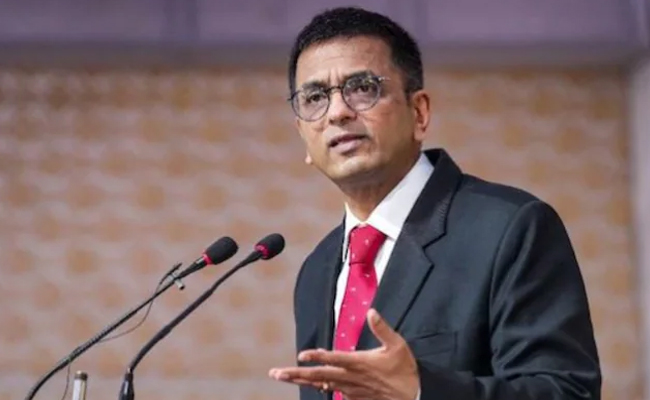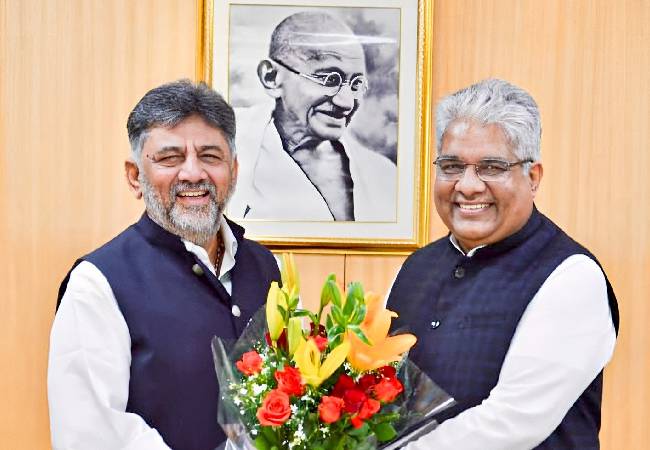New Delhi: Chief Justice of India (CJI) DY Chandrachud reprimanded a lawyer today for using the informal expression “yeah” during a court proceeding, stating that the courtroom is not a coffee shop. The CJI made the remark while hearing a petition in which the lawyer sought an in-house inquiry against former Chief Justice of India, Justice Ranjan Gogoi.
During the hearing, the lawyer mentioned a 2018 petition that named Justice Ranjan Gogoi as a respondent. The CJI asked, “Is it an Article 32 plea? How can you file a Public Interest Litigation (PIL) with a judge as a respondent?” Article 32 of the Constitution allows citizens to seek constitutional remedies when their fundamental rights are violated.
In response, the lawyer said, “Yeah, yeah, the then CJI Ranjan Gogoi... I was asked to file a curative...” The CJI interrupted, expressing his disapproval: “This is not a coffee shop! What is this ‘yeah yeah’? I am very allergic to this ‘yeah yeah.’ This cannot be allowed.”
CJI Chandrachud further pointed out that Justice Gogoi, now a Rajya Sabha MP, was a former judge of the Supreme Court and cannot be made a respondent in such a manner. He added that the petitioner could not seek an in-house inquiry against a judge just because he did not succeed in court.
The lawyer argued that Justice Gogoi had dismissed his plea based on a statement he considered illegal. He claimed to have requested former CJI TS Thakur to move his review plea before a bench familiar with labour laws, but the request was not entertained, leading to its dismissal.
The CJI instructed the registry to review the petition and asked the lawyer to remove Justice Gogoi’s name from it before proceeding further.
Let the Truth be known. If you read VB and like VB, please be a VB Supporter and Help us deliver the Truth to one and all.
Sultanpur (PTI): A debt-ridden neighbour allegedly kidnapped and murdered an 11-year-old boy boy at Sultanpur, police said on Wednesday.
The accused, Asif alias Sonu, demanded a ransom of Rs 5,00,000 for releasing Osama alias Sahil to repay his debts, Kotwali police station SHO Naradmuni Singh said.
"The incident took place in the Gandhinagar locality of Sultanpur. The victim's father, Mohd Shakeel, said his son went missing on Monday night after he left to attend a wedding procession. Despite searches, there was no trace of the child," the SHO said.
On Wednesday morning, Osama's body with strangulation marks was found at the residence of the accused whom the police arrested, he said.
Asif, who lives in the same neighbourhood as the victim, exploited the trust built between the two families to carry out the crime, the officer said.
The killing of the minor boy has triggered outrage in the area with the residents demanding stringent punishment for the accused.
The victim's family has called for death penalty for Asif.





